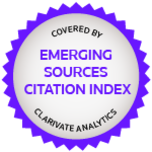Early Childhood Peer Reviewed Journals Social Emotional Development
Special Result "Social and Emotional Development in Early on Childhood Education"
Special Outcome Editor

Prof. Dr. Mirjam Kalland
Electronic mail Website
Guest Editor
Section of Education, University of Helsinki, Yliopistonkatu 4, 00100 Helsinki, Republic of finland
Interests: family studies; kid development; early childhood education.
Special Issue Information
Dear Colleagues,
Social and emotional development is fundamental for the healthy development and wellbeing of children. Social and emotional development involves the conquering of skills related to understanding feelings and intentions in self and others, and to learn to regulate behavior past managing stiff emotions. Social and emotional evolution is also related to the ability to feel empathy and to develop prosocial behaviors. In improver, social and emotional development is important for the development of skills related to school readiness and later bookish achievement. These include, amidst others, the ability to cooperate with other kids and to pay attention to and relate to adults every bit a reliable source of information—i.e., epistemic trust. Creating epistemic trust is specially important in classrooms with children from diverse cultural backgrounds, children with challenging behavior, and children with learning difficulties. In brusk, social and emotional development is the primal to self-regulation, social interaction, and learning. A related concept is Theory of Mind, i.e., the ability to understand mental states (intentions, desires, thoughts, and beliefs), and to predict one'due south own and others' behavior on the ground of these understandings. Finally, a child'due south positive relationship with trusting and caring adults is the central to successful social and emotional development. Thus, mentalizing, i.e., the ability to keep the kid's heed in mind, is of vital importance for teachers, and tin be enhanced in both children and teachers in the classroom.
Prof. Dr. Mirjam Kalland
Invitee Editor
Manuscript Submission Information
Manuscripts should exist submitted online at www.mdpi.com past registering and logging in to this website. Once you are registered, click here to get to the submission form. Manuscripts tin can be submitted until the deadline. All submissions that pass pre-check are peer-reviewed. Accepted papers will be published continuously in the periodical (as soon as accustomed) and will exist listed together on the special issue website. Enquiry articles, review articles as well as short communications are invited. For planned papers, a title and short abstract (about 100 words) can be sent to the Editorial Office for announcement on this website.
Submitted manuscripts should not have been published previously, nor be under consideration for publication elsewhere (except conference proceedings papers). All manuscripts are thoroughly refereed through a double-blind peer-review process. A guide for authors and other relevant information for submission of manuscripts is available on the Instructions for Authors folio. Education Sciences is an international peer-reviewed open admission monthly periodical published by MDPI.
Delight visit the Instructions for Authors page before submitting a manuscript. The Commodity Processing Charge (APC) for publication in this open up access journal is 1400 CHF (Swiss Francs). Submitted papers should exist well formatted and use practiced English language. Authors may utilize MDPI's English editing service prior to publication or during writer revisions.
Keywords
- social and emotional learning
- early didactics
- intervention studies
- theory of mind development
- promoting mentalizing
- assessments of social and emotional evolution
- schoolhouse readiness
Published Papers (five papers)
Source: https://www.mdpi.com/journal/education/special_issues/early_childhood_education

0 Response to "Early Childhood Peer Reviewed Journals Social Emotional Development"
Enregistrer un commentaire